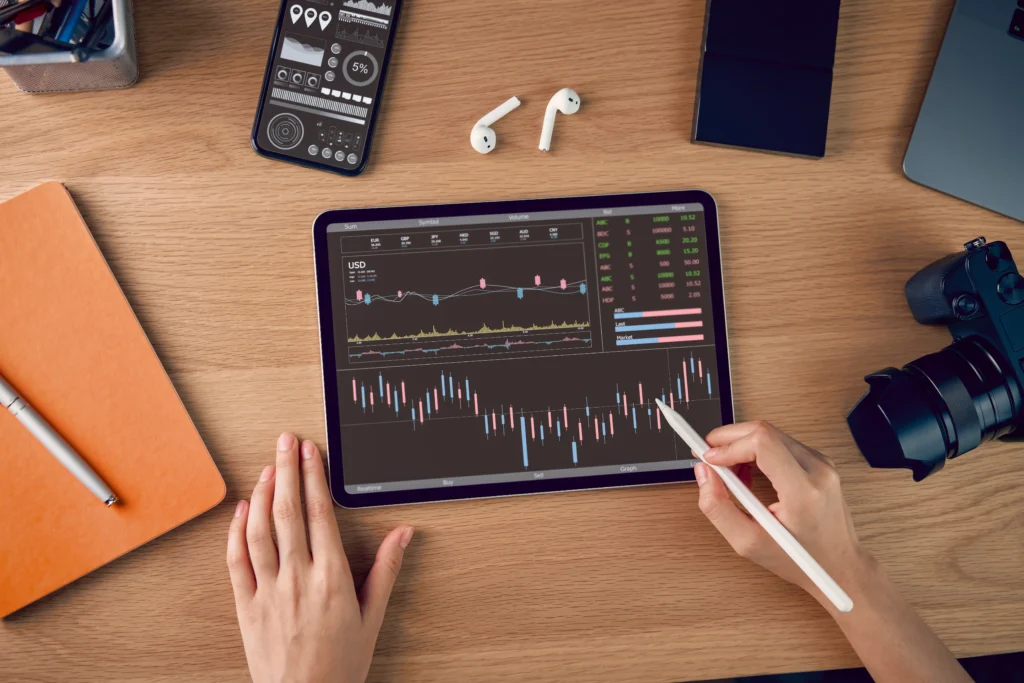In Forex trading, managing risk effectively is essential to long-term success. While the market offers immense potential for profits, it also carries inherent risks due to volatility and uncertainty. One powerful tool to manage these risks is Forex buy signals. These signals provide actionable insights, guiding traders to enter the market at optimal points while implementing risk management measures like stop-loss and take-profit levels.
This guide explores how to use Forex buy signals effectively to minimize losses and maximize gains, while incorporating best practices, tools, and strategies for risk management.
What Are Forex Buy Signals?
Forex buy signals are trade recommendations that suggest entering a long (buy) position in a currency pair. They are generated through a combination of technical indicators, fundamental analysis, or automated algorithms.
Key Components of Forex Buy Signals
- Entry Price: The recommended price level to enter the trade.
- Stop-Loss: A price level to exit the trade if it moves against you, limiting potential losses.
- Take-Profit: A price target to lock in profits when the market moves in your favor.
Forex buy signals can be delivered through mobile apps, email alerts, or trading platforms, ensuring traders receive timely updates to act quickly.
How Forex Buy Signals Help in Risk Management
- Clear Entry and Exit Points
Forex buy signals reduce uncertainty by providing precise entry and exit points. This eliminates the guesswork often associated with market timing.
- Stop-Loss and Take-Profit Integration
Incorporating predefined stop-loss and take-profit levels helps traders limit losses and secure gains automatically.
- Avoiding Emotional Trading
By following structured signals, traders can avoid impulsive decisions driven by emotions such as fear or greed.

Best Practices for Using Forex Buy Signals to Manage Risk
- Understand the Signal Before Acting
Before executing a trade, ensure you understand the logic behind the signal. Evaluate its compatibility with your trading strategy.
- Use Proper Position Sizing
Avoid overexposure by calculating the appropriate position size for each trade. Use tools like Forex calculators to determine your lot size based on risk tolerance.
- Combine Signals with Personal Analysis
Validate signals by cross-referencing them with technical indicators or fundamental news events.
- Set Realistic Expectations
Not all buy signals result in profitable trades. Focus on long-term consistency rather than immediate wins.

Tools and Strategies for Risk Management with Forex Buy Signals
- Forex Calculators
Forex calculators can help you assess the risk-reward ratio of a signal, calculate pip values, and determine the ideal position size.
- Economic Calendars
Stay updated with global events that may impact the performance of your buy signals. Economic calendars provide insights into interest rate decisions, GDP reports, and other critical announcements.
- Technical Indicators
Use tools like Bollinger Bands, RSI, and Moving Averages to validate buy signals and identify market trends.

Benefits of Forex Buy Signals in Risk Management
- Time Efficiency
Forex buy signals save traders time by eliminating the need for extensive market research.
- Structured Trading Approach
Signals provide a disciplined framework, helping traders avoid random or impulsive decisions.
- Learning Opportunities for Beginners
By following buy signals, novice traders can understand how market analysis translates into actionable decisions.
Risks and Limitations of Using Forex Buy Signals
While Forex buy signals can be highly effective, they are not without their challenges.
- Overreliance on Signals
Traders who depend solely on signals may miss the opportunity to develop their analytical skills.
- Market Volatility Risks
Signals can fail during periods of extreme volatility, such as during major economic announcements.
- Misinterpretation of Signals
Improper understanding or execution of signals can lead to poor results, especially for beginners.
How to Mitigate These Risks
- Practice using buy signals on a demo account.
- Use stop-loss orders to minimize exposure.
- Diversify trades across multiple currency pairs to reduce reliance on a single signal.

Free vs. Paid Forex Buy Signals: Which Should You Use?
Free Forex Buy Signals
Free signals are an excellent choice for beginners who want to explore Forex trading without financial commitments. However, they may lack detailed analysis or high accuracy.
Paid Forex Buy Signals
Paid signals often come with enhanced features like personalized support, advanced analysis, and higher reliability.

Common Mistakes When Using Forex Buy Signals
- Ignoring Stop-Loss Levels
Neglecting stop-loss recommendations can lead to significant losses if the trade moves against you.
- Following Too Many Signals
Overloading your strategy with multiple signals can cause confusion and reduce focus.
- Neglecting Market Trends
Failing to consider broader market trends when acting on buy signals can diminish their effectiveness.
Future Trends in Forex Buy Signals
- AI and Machine Learning Integration
AI-powered buy signals are becoming more accurate and adaptive to changing market conditions.
- Blockchain for Transparency
Blockchain technology may enhance the trustworthiness of signal providers by offering transparent records of performance.

FAQs About Forex Buy Signals
- What are Forex buy signals?
Forex buy signals are alerts recommending a buy position in specific currency pairs based on market analysis. - Are Forex buy signals reliable?
They can be highly effective when sourced from reputable providers and combined with proper risk management. - Can beginners use Forex buy signals?
Yes, buy signals are ideal for beginners as they simplify trading decisions. - What tools can enhance Forex buy signal efficiency?
Forex calculators, economic calendars, and trading platforms are essential for maximizing signal benefits. - How do I manage risk using buy signals?
Always use stop-loss orders, position sizing, and diversify your trades. - What’s the difference between free and paid buy signals?
Free signals offer basic recommendations, while paid signals provide detailed analysis and advanced features.
























